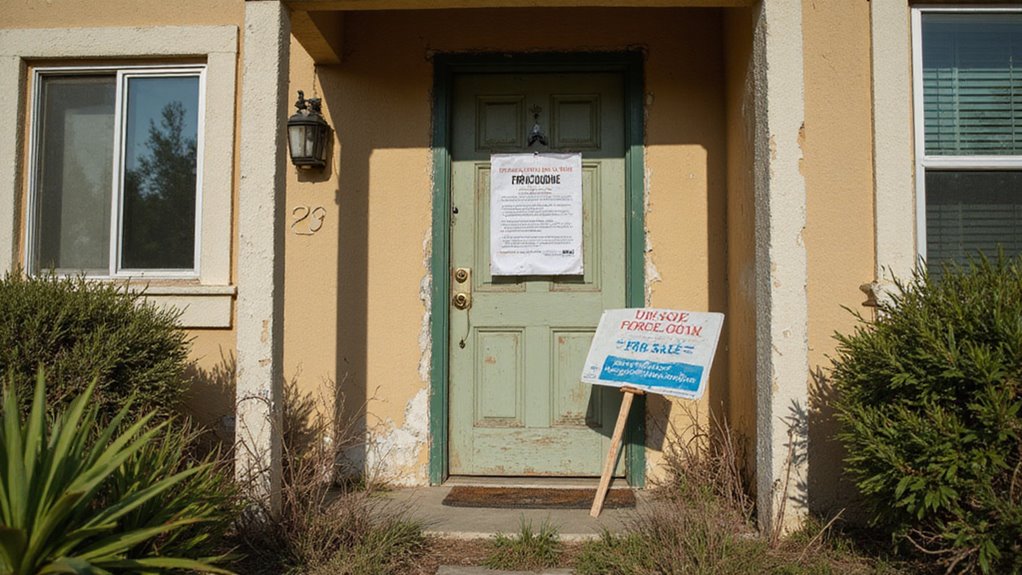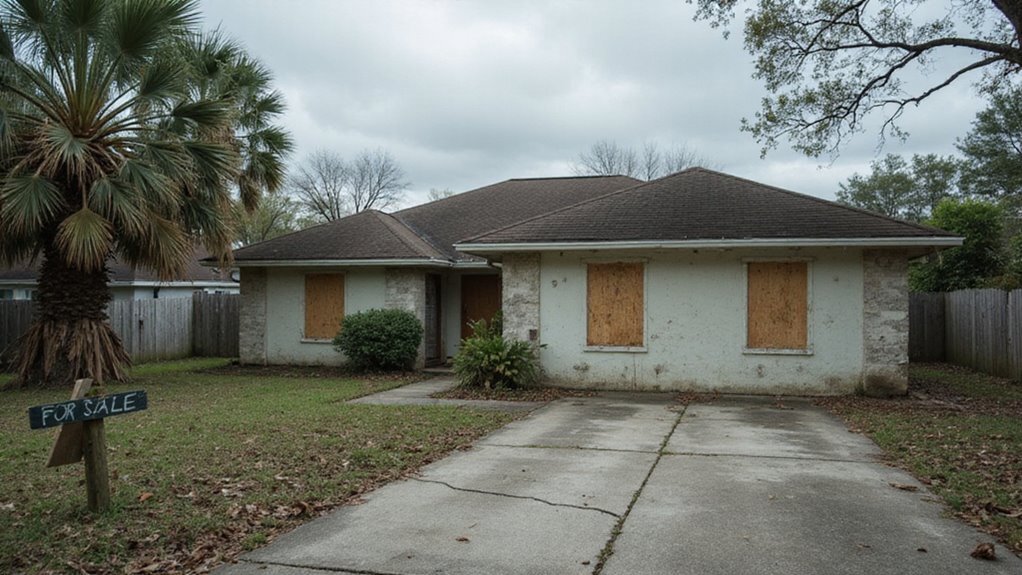Facing foreclosure in Florida can be overwhelming and stressful. Many homeowners miss payments and risk losing their homes. After just 30 days of missed payments, lenders start sending warnings. This default can spiral into a bigger problem. Understanding the process is vital to protect your rights.
The situation escalates fast if unresolved. Lenders may offer solutions, but time is short. Missing deadlines can lead to legal action. Anxiety builds as the threat of losing your home grows stronger. Each step in foreclosure feels daunting and urgent. Yet, there’s hope if you act quickly.
Knowing Florida’s foreclosure process empowers you to make smart choices. This guide breaks down every phase clearly. With the right knowledge, you can explore options and fight back. This blog will guide you through Florida’s foreclosure maze to find solutions fast.
Key Takeaways
- Foreclosure in Florida begins after 30 days of missed payments, with lenders issuing early warnings.
- A Notice of Election and Demand requires full loan payment, risking immediate foreclosure if ignored.
- Auctions are scheduled 20-35 days post-judgment, with public notices in local newspapers.
- Homeowners have a Right to Cure, paying overdue amounts before final judgment under strict deadlines.
- Post-foreclosure, Florida typically offers no redemption period, but surplus funds can be claimed.
A Detailed Breakdown of Foreclosure Process in Florida
As you navigate the foreclosure process in Florida, you’ll first encounter critical stages like Default and Initial Notification, where lenders alert you of missed payments. You’ll then face the Notice of Election and Demand (NED), followed by the Sale Date and Notification, alongside your Right to Cure and the Rule 120 Hearing. Understanding these steps empowers you to respond effectively and protect your interests. Additionally, be aware that foreclosure auctions in Florida are typically held 30 days after the final verdict, as per state guidelines.
1. Default and Initial Notification
Understanding Florida’s foreclosure process starts with default and initial notification. Missing mortgage payments triggers a default, risking your home. Lenders often mark default after 30 days of non-payment. Contract terms might differ, so check yours carefully. You will get early warnings from lenders through calls or letters. These reminders urge you to pay and avoid bigger issues. If you act fast, you can explore payment plans. Loan modifications might also help if you qualify. Staying proactive can stop legal actions against you. Addressing default early protects your property from foreclosure.
2. Notice of Election and Demand (NED)
The Notice of Election and Demand (NED) is a key part of Florida’s foreclosure process. It shows the lender has decided to demand full payment of your loan due to default. This legal document requires you to pay the entire debt immediately. If you don’t act, the lender may start foreclosure proceedings soon.
Consider your options carefully when you receive the NED. You can try negotiating a repayment plan with the lender. Seeking a loan modification might also help resolve the issue. If ignored, the NED could lead to serious consequences. Stay aware and get legal advice to protect your rights.
3. Sale Date and Notification
After getting the Notice of Election and Demand, prepare for the Sale Date and Notification in Florida’s foreclosure process. This step involves setting a date for the property auction by the court or clerk. You will be informed through clear alert methods to stay updated. If you miss important dates, it can harm your situation.
Here’s key information about scheduling and notifications:
- Auction Date: The court sets this date, usually 20-35 days after the judgment.
- Public Notice: Auction details appear in a local newspaper for public awareness.
- Direct Alerts: Formal notices come to you by mail or electronic systems.
Stay alert to safeguard your interests in this phase.
4. Right to Cure
Florida’s foreclosure process offers homeowners a chance to stop foreclosure by fixing the mortgage default. This right lets you pay the overdue amount and fees to reinstate your loan. You must act before the final judgment. Florida law has strict deadlines for this option. If you miss them, you risk losing your home.
If struggling with the deadline, you can explore Cure Extensions. Courts might give extra time under certain conditions. You must request this extension quickly. Legal remedies are also available to protect your rights. Stay informed and act fast to save your property.
5. Rule 120 Hearing
Florida’s foreclosure process includes the important Rule 120 Hearing. This stage lets a judge review the lender’s foreclosure claim. If you’re unprepared, you might risk losing your home.
Here’s key information about the Rule 120 Hearing:
- Evidence Sharing: You can show reasons to dispute the lender’s foreclosure request.
- Judge’s Check: The judge verifies if the lender obeyed all legal rules.
- Possible Results: Outcomes may include dismissal, a delay, or foreclosure approval.
Knowing these points helps you handle the hearing well. If you stay active, gather documents, and seek legal advice, you can challenge the lender effectively. Protect your rights with proper preparation.
6. Foreclosure Sale
The foreclosure sale in Florida is a key step where the property is sold to cover the lender’s losses. This sale happens through a public auction, usually at the county courthouse. The highest bidder wins the property if they meet specific rules. Bidders must register in advance and provide a deposit, often 5% of their bid. They also need to show they can pay the full amount to close the deal. If you plan to bid, bring all required funds and documents. The court watches over the process to keep it fair. Make sure you know the rules and deadlines to avoid issues.
7. Post-Sale
After a foreclosure sale in Florida, the post-sale phase begins with crucial steps to address. This stage decides your final rights and duties. You likely no longer own the property, but important matters still need focus.
Here’s how to handle this phase clearly:
- Redemption Period: Florida usually offers no post-sale Redemption Period. You can’t reclaim the property unless rare exceptions apply.
- Surplus Funds: If the sale price tops the debt, you might get Surplus Funds. Act fast to claim them via court.
- Eviction Process: If you’re still in the property, prepare for eviction. The new owner could start this process soon.
Can You Sell a House in Foreclosure in Florida?

Yes, you can sell a house in foreclosure in Florida. Timing and planning are very important, though. If you act fast, you might protect your credit. Selling before the auction can help recover value. Ensure you check if you have equity first.
Home equity decides your selling options in Florida. If equity exists, a traditional sale might work well. Otherwise, consider a short sale with lender approval. Market trends often lower offers on foreclosure homes. So, price your home competitively to sell quickly.
Florida’s foreclosure process moves fast, so don’t delay. Once the auction happens, you lose control completely. Consult a real estate expert for guidance. An attorney can help with liens or approvals. Act now to safeguard your financial future. Selling to cash buyers can provide a quick closing solution for homeowners facing foreclosure.
Conclusion
In conclusion, navigating Florida’s foreclosure process can be challenging. If you’re facing foreclosure, acting quickly is essential. Understanding your options, like the Right to Cure, may help save your home.
If selling your house during foreclosure seems viable, we buy houses for cash. This option could provide a fast solution. You can avoid the stress of auctions by reaching out promptly.
Should you need assistance, we at Greg Buys Houses are here to help. Contact us today for a fair, quick offer. Let’s work together to resolve your foreclosure concerns.

